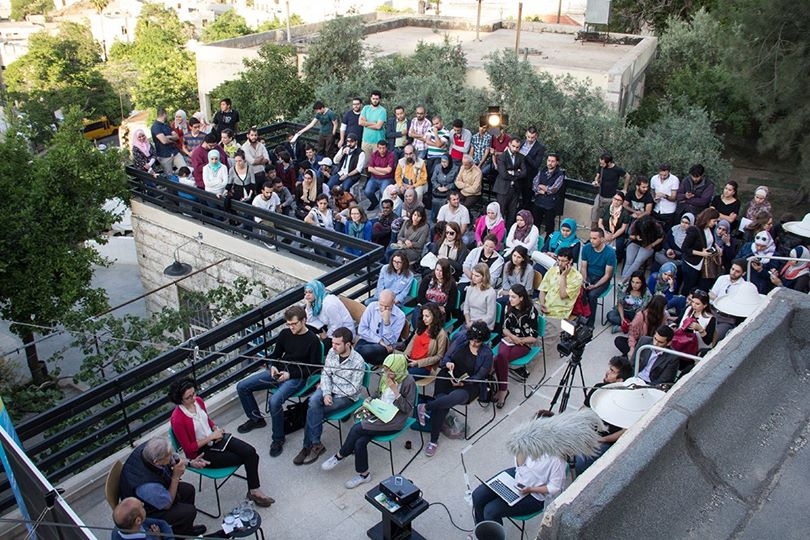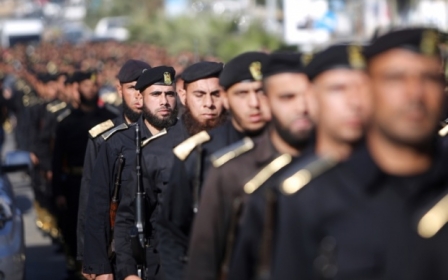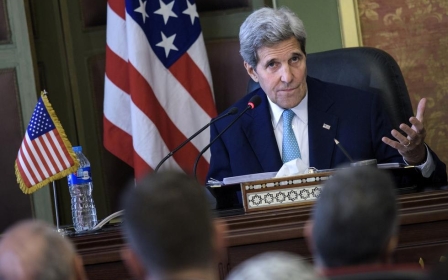Jordan's media forges new role amid government restriction

AMMAN - For an online magazine publishing critical, investigative and analytical coverage of Jordan and the Middle East, 7iber - pronounced “hibber” - is both a logical and mismatched title: Translating to “ink”, 7iber produces a wealth of writing, yet it exists everywhere except in print.
Since the organisation’s founding in 2007, the site has become a trendy brand by holding film screenings, debates and music nights in its tumbledown offices in central Amman. The publication also hosts a platform, both online and off, for conversations about some of Jordan’s most contentious and hushed-up issues.
During the Arab uprisings, it held a series of “hashtag debates” that scrutinised, among other things, the role of the monarchy, the effects of secret intelligence services and the Jordanian constitution. Ordinary people expressed interest in having structured conversations about difficult topics, said 7iber co-founder Ramsey George.
“They were really popular, incredible conversations that I don't think had ever taken place or maybe will ever take place again publicly, critically, that honestly,” he told Middle East Eye. “These were things that people were scared out of their wits talking about. But they came, and they talked about them.”
Today, 7iber continues to thrive. In the past year, it has organised readings of banned books, published exclusives on Jordan’s military response to Islamic State group’s aggression, and started a debate on the forms of Arabic used in media and popular culture.
Site blackout
But 7iber faces bigger challenges than the usual ins and outs of online media. In 2013, the Jordanian government blocked the site after the Press and Publications Law, which had long required print news providers to be licensed by the government, was extended to online publications. Along with the site, more than 200 outlets were taken off the web overnight.
A Jordanian government spokesperson did not respond to request for comment on the situation. But authorities defend the Press and Publications Law as legitimate and democratic.
Several articles within the legislation itself state that freedom of the press and of opinion is guaranteed in Jordan; when the law was extended to websites in 2012, Press and Publications Department Director Fayez Shawabkeh told the Jordan Times that it sought “to protect the interests of individuals and institutions”.
"The underlying reason of drafting the law is to organise media work, not to gag mouths or restrict public freedoms," Fayez Tarawneh, Jordan’s Prime Minister at the time also said.
7iber was blocked and re-blocked for months before its team decided they had no choice but to apply for a license. Once they registered, the site went up and ran again, but it was a bittersweet victory after months of opposing state licensing on the grounds of freedom of speech.
7iber's opposition to the law, and its subsequent acquiescence to it, exposes just one aspect of Jordan’s restrictive media climate. Laws against defaming the king and damaging foreign relations carry heavy penalties, and this year alone several journalists have been detained.
Among them is Jamal Ayyoub, arrested for an article critical of Saudi Arabia’s Yemen bombing. Both the editor-in-chief and owner of independent news website Soraya were accused of aiding terrorism with published information.
“These cases create what you call the chilling effect. When I write, I don’t infringe the law, even the law that is not meeting international standards,” Yahya Shuqair, a veteran journalist who is now an expert in media law, told Middle East Eye. “In 30 years, since I started working in journalism, this is the first time in my life that I have fear. Because to be afraid is justified.”
Rife nepotism
Many journalists and campaigners working for press freedom agree with Shuqair: they are tired, and many say things are getting worse, at least in the mainstream press.
They also know that legal mechanisms are just one means of control. Many major newspapers - most notably Al Rai and Ad Dustour - are owned fully or partially by the government, which means authorities have a strong influence on board-level decisions and appointments.
That contributes to high levels of nepotism, according to Saad Hattar, a journalist working with Arab Reporters for Investigative Journalism (ARIJ). Being cooperative and networked in government circles can be more important than talent, and investigative or human rights reporting can lead to a dead-end career - or worse.
“The authorities try to manipulate the media in so many ways: withholding advertisements against some, pressuring others, having stakes in others,” he said. “As a result of this continued meddling in the media for the past two or three decades you have journalists who have self-censorship. They don’t push the limits, they don’t push the ceiling, they’re not ethically and professionally trained to handle the news as they should.”
The results in mainstream media in Jordan can be uninspiring: there’s plenty of press-release style headlines about royal speeches, visits and park openings, and less investigative or analytical journalism.
“They are not carrying out their mission properly. They are just an echo of the authorities,” Hattar argued. “They haven’t tried to develop their tools, move into analysis, in-depth reporting, they haven’t done that at all. They’re into the classical type of reporting that is forgotten by readers.”
That means the future for newspapers is, in Hattar’s eyes, bleak. He believes many will fade away within five years. There are already strikes against publishing government information at Al Rai, and a full blown crisis is unfolding at Ad Dustour, where employees have gone for months without pay.
At the offices of his former paper, Al-Arab Al-Yawm, Yahya Shuqair does not have much sympathy for the fate of struggling papers.
“In the past, Al Rai and Dustour were the mouthpiece of the government. Now, the audiences don’t buy such information, they don’t buy such products,” he said.
“Now the audience want the other side of the story, and if the audience don’t want you, then you pay the price, you close. People now can communicate without the mediator. The mediator is the newspaper,” he added.
Though Shuqair’s career began in print media, he has become a digital evangelist who believes the web will force out the old guard with journalism that is critical, progressive, and a genuine reflection of the population. “This technology offers an unprecedented opportunity to ordinary people to become the narrator of the story,” he said.
If his predictions come true, 7iber could be a key player in Jordan’s media future. It is independent and has access to funding streams that don’t place it at the mercy of the government; its founders and staff are young and vocal about the problems they see in Jordanian media and have the vision for what could replace them.
Concern for media freedom
In its early days, the website grew out of a perception that there was little in the country’s media aside from surface-skimming headlines and sensationalist gossip. The aim was to create something that can “inform, inspire and engage communities to foster a more open society”, in the words of 7iber's manifesto.
That vision is not without its problems. The website has a reputation for being popular with a young, liberal audience, a relatively narrow section of society, and as a result some view it as a leftist publication with a political agenda.
The original vision of a citizen media platform, too, has been heavily reformulated in the site’s lifespan. In the months following the site’s founding, George explained, it became clear that the gap in the media was too large for an open-access, reader-populated site to be really successful.
“It was hard to even have a useful conversation without all that information available,” George, who until recently served as 7iber’s managing editor, said. "This is the role of what we think a professional media and an independent media is: providing that basis. Then you can have a critical conversation and an informed conversation.”
This month, 7iber hopes to focus more sharply on in-depth analysis and reporting on Jordan and the region.
Concern for media freedom in Jordan has increased lately - in a recent report from Jordan’s Centre for the Protection of the Freedom of Journalists, 95 percent of surveyed journalists said they practised self censorship - but 7iber looks set to continue publishing in the gaps where debate can happen freely.
“It's interesting, because it's a repressed environment, but actually there's a lot of space in between and lots of areas for discussion. There are certain rules that you need to follow a little bit, but if you know how to keep close to those guidelines, you can have incredibly open conversations,” George said.
“We're trying to look at that - trying to exploit those interesting areas where there's space to have those conversations.”
New MEE newsletter: Jerusalem Dispatch
Sign up to get the latest insights and analysis on Israel-Palestine, alongside Turkey Unpacked and other MEE newsletters
Middle East Eye delivers independent and unrivalled coverage and analysis of the Middle East, North Africa and beyond. To learn more about republishing this content and the associated fees, please fill out this form. More about MEE can be found here.




